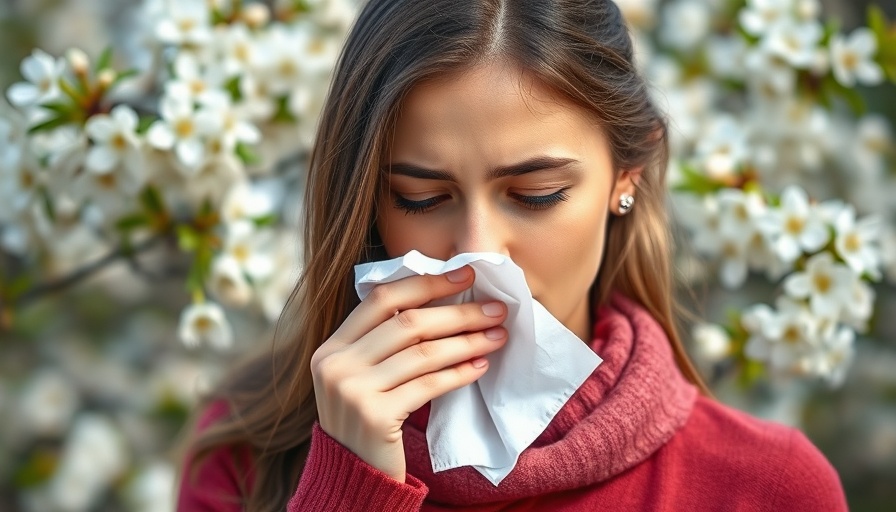
Understanding Houston's Allergy Challenges
As spring unfolds across the United States, the blossoming flowers and chirping birds bring joy to many. However, for over 100 million Americans living with allergies, this season comes with a significant challenge. Houston has recently been ranked as the 26th worst city in the U.S. for seasonal allergies, according to a report by the Asthma and Allergy Foundation. With its unique climate and varied pollen sources, the region's allergy situations are particularly troubling for residents.
What Contributes to Allergies in Houston?
Houston's ranking derives from several key factors identified in the report: tree, grass, and weed pollen scores; the availability of over-the-counter allergy medications; and the presence of allergy specialists in the area. While particular pollen counts typically fluctuate throughout the year, Houston's ratings reveal a worryingly high pollen count that sits above average. This is exacerbated by geographical factors, as Houston's warm and humid climate fosters a longer season for pollen-producing plants.
The Allergy Landscape: A Nationwide Overview
While Houston battles its allergy problems, cities like Wichita, Kansas and New Orleans lead the pack in the disproportionate burden of seasonal allergies. Wichita takes the top spot, influenced heavily by its environmental conditions, particularly regarding pollen scores. New Orleans and Oklahoma City, ranking second and third, reveal a broader regional vulnerability, especially in the Midwest and Southeast where many cities deal with comparable challenges.
Practical Tips for Allergy Management
To navigate Houston's allergy terrain, residents should consider effective strategies to mitigate symptoms. Here are some actionable insights for individuals:
- Monitor Pollen Counts: Regularly check local pollen counts and plan outdoor activities accordingly. Engaging in outside tasks on low pollen days can significantly ease symptoms.
- Indoor Precautions: Keep windows shut during high pollen seasons to prevent indoor air contamination. Using air purifiers and regularly cleaning can minimize pollen exposure indoors.
- Protective Gear: On particularly high-pollen days, wearing sunglasses, hats, and masks can shield against airborne pollen when venturing outside.
Future Insights: Where Is Allergy Research Headed?
The growing prevalence of allergies has sparked significant research interest, indicating a potential for advancements in treatment and prevention. New therapies are under investigation, focusing on immunotherapy and the genetic components of allergies. Research has shown promising developments in the customization of treatments that are more tailored to individual sensitivities. The continued exploration in this area offers hope for relief for current and future allergy sufferers.
Emotional Impact and Living with Allergies
Living with allergies often goes beyond physical symptoms; it can affect emotional well-being and daily life. The fear of unexpected allergic reactions can result in anxiety and avoidance behaviors, limiting social interactions and outdoor activities. Education and community support can play pivotal roles in helping individuals with allergies feel more empowered and connected to those who understand their struggles.
Conclusion: A Call to Action
As Houston residents prepare for the allergy season, raising awareness about the increased allergy risks can promote education and preventive measures across communities. Understanding Houston's ranking and its implications allows individuals to better manage their health. Those suffering from allergies are encouraged to consult local specialists, participate in community discussions, and actively seek solutions to alleviate their symptoms. By fostering a proactive approach, we can work together to mitigate the impact of allergies on our daily lives.
 Add Element
Add Element  Add Row
Add Row 



Write A Comment